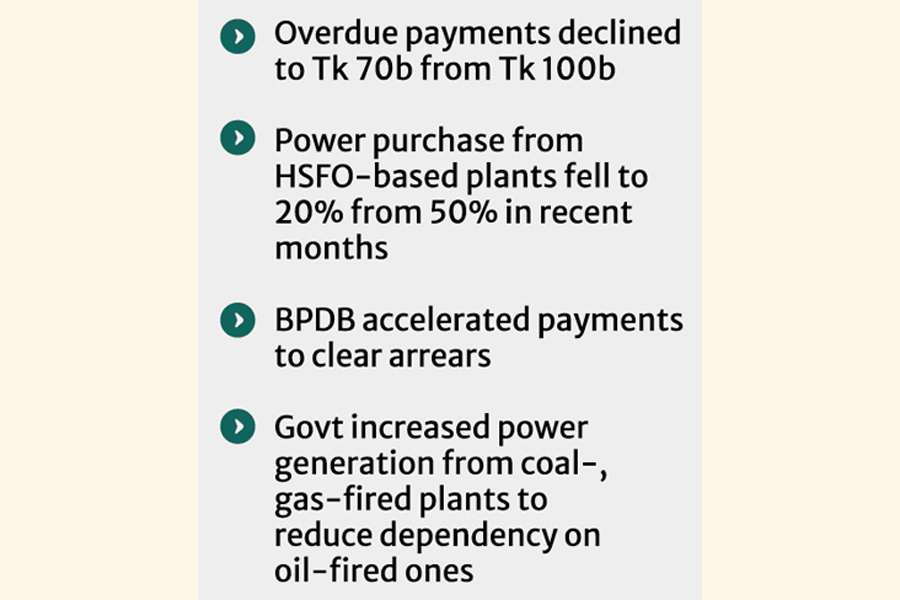
Published :
Updated :

Government payment backlog to privately-owned furnace oil-fired power plants declined to around Tk 70 billion, or by 30 per cent, from Tk 100 billion over the past three months since January, market insiders said.
Less-than-expected electricity purchases by the state-run Bangladesh Power Development Board (BPDB) from high sulphur fuel oil- (HSFO) or furnace oil-based plants and the acceleration of payments by BPDB to clear the arrears played a key role in the fall in the long-pending payments, they said.
"The government has significantly squeezed the purchase of electricity from HSFO-based plants over the past several months," President of the Bangladesh Independent Power Producers Association (BIPPA) David Hasanat told The Financial Express Sunday.
This has fallen to nearly a meagre 20 per cent from around 50 per cent of overall electricity generation,
he said.
"It is good to see that the government is managing well to ensure a smooth supply of electricity without buying significantly from HSFO-fired plants," Hasanat also said.
It would be good for all if the government can continue this, he added.
The government has ramped up electricity generation from coal- and gas-fired plants over the past several years to reduce the dependency on oil-fired ones, a senior BPDB official said.
The increased volume of electricity purchase from India's Adani Power Jharkhand Ltd (APJL) also helped improve overall power supply across the country, he said.
The state-run Petrobangla has increased the purchase of liquefied natural gas (LNG) from the spot market to re-gasify a record volume of LNG to the tune of around 1,022 million cubic feet per day (mmcfd) during mid-March to meet the growing demand in industries and power plants, according to official Petrobangla data.
Riding on increased power generation from coal- and gas-fired plants along with imports, Bangladesh witnessed almost a load-shedding-free Ramadan this year, said the BPDB official.
Power supply during the ongoing summer is well-managed as well, he added.
Chief Adviser to the caretaker government Professor Muhammad Yunus also applauded government officials Sunday for ensuring a smooth and hassle-free Eid-ul-Fitr marked by minimal power outages.
Officials said most of the oil-fired plants were awarded to the private sector under the "controversial" Quick Enhancement of Electricity and Energy Supply (Special Provision) Act 2010 (Amended 2021), which has been cancelled by the post-uprising interim government.
According to power sector officials, the country's peak electricity demand during the ongoing summer may exceed 18,232MW.
Currently, Bangladesh's overall electricity generation is hovering between 13,000MW and 14,000MW.
Azizjst@yahoo.com


 For all latest news, follow The Financial Express Google News channel.
For all latest news, follow The Financial Express Google News channel.